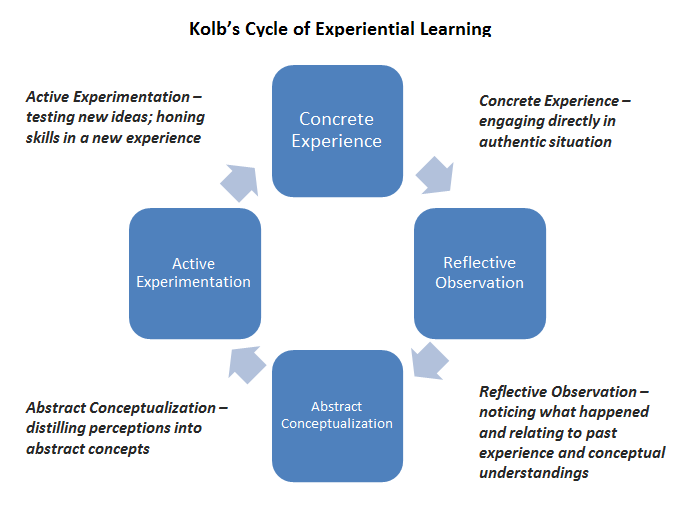What is “Experiential” and Why it’s at the Heart of Wilderness Therapy
Experiential is integral to what we do at Deschutes Wilderness Therapy, and yet there is a lot of confusion around just what that means. A few of our experts, Allison Twidwell, Experiential Education Director, and Bianca Milia, Deschutes Young Adult Field Director, share what it is and how it supports the therapeutic process for young adults and adolescents in our programs.
Milia, says, “It’s such a simple thing. It’s embedded in everything that we do.”
Twidwell, adds:
“98% of what we do is experiential. It involves bringing meaning to mundane activities and showing how it can be applied to life outside the woods. It’s up to our field instructors to bring in the intention and the context. How is learning a particular skill, for example, applicable to your life outside the woods? That’s a huge theme we see throughout our whole program – bringing meaning to all the things we do out there.”
Milia further elaborates:
“There is structure to it (experiential). It is the experience in which you are actively learning. Then, following this, students share and generalize what was just learned and review within a group. For example, learning to work together to set up a tent can build confidence. We discuss how can this confidence and or skill can be used in everyday situations.”
The experiential process applies to hard skills like knot tying, starting a fire, cooking a meal, working in a team to set up a tarp, planning a rock-climbing trip, etc., and soft skills like interpersonal and relational proficiencies. Both are important, and we’ll next highlight how they create growth opportunities within our program for teens and adults.

Experiential Process in Adolescent Programs
Academics in wilderness therapy, such as P.E. and Health courses, are experiential in and of themselves. For example, adolescent students participate in nomadic backpacking, and this activity applies to their P.E. credit. The health course may involve a conversation around experiential activities — staying clean while out in the woods and recognizing what self-care looks like to individual participants. These guide-led discussions allow students to take part in their therapy.
Adolescents also engage in experiential adventure activities. Twidwell shares how participants involvement led to profound personal insights:
“We took a group rock climbing 3 months ago, and when they learned they were going to belay each other, they were like “We can’t do that!” Allison engaged the group and said, “Let’s talk about this. Why are you resistant to this idea? What feels scary about it? It wasn’t about trusting someone else to belay you; it was more about trusting yourself to belay the other person. It was such a beautiful act. We talked about what does trust mean to you? Is it harder to trust yourself vs. your peers?”
Adventure Therapy can open up those profound conversations and self-reflection.
Experiential Process for Young Adults
At Deschutes Wilderness Therapy, we take one adventure trip a month for young adults and two community integration trips that often involve volunteering. Says Milia:
“We are bringing them into the community to work on the things they are working on in the woods (emotionally, psychologically). How can you integrate what you are learning in the field? For example, sometimes it’s a really stressful environment compared to the wilderness, so they have a great opportunity to practice their self-regulation tools.”
Community integration teaches young adults how to interact successfully in society. These points of engagement and the ability to practice skills enable smoother transitions beyond the wilderness.
While both adolescents and young adults engage in adventure activities, young adults have the opportunity to participate in the planning for the trip. She further illustrates,
“If they are going to be gone for 3 days or so, students should be learning how to pack their bear bags, and meal preps – making sure they have enough food, etc.”. Adventure activities help students see how they can be capable and valuable in a group effort in everyday life. “Through adventure activities, students are learning to conquer their fears. You put our students on a rock-climbing trip, and they’re like – “I never thought I could do that! That was so amazing!”
Trust and gained confidence in themselves, and others are often a result when students see their planning efforts succeed in these scenarios. Soft skills such as interpersonal and intrapersonal development bloom in community integration, such as charity work, that follows the wilderness experiences.
Expanding on the Experiential Process
Another integral piece of experiential learning at Deschutes Wilderness Therapy is the mastery program. Mastery ties in the academics for the adolescents; as for example, Our English credited course includes a written assignment with participation in our Mastery Program. Both adolescent and young adults take part in mastery projects. Twidwell elaborates:
“The idea of mastery is that all of our students get to pick one skill they want to hone in on and master throughout their whole process with us. So, maybe they never played a guitar before, and they are going to pick up guitar and go through the experience of learning it and teaching the group about it. Then, coming up with a final project where they share everything they learned with the group. So going through this whole process directly attributes to getting an English credit which is pretty cool.”
In essence, our students become masters of whatever they choose, and this is supported therapeutically to work through challenges.
Experiential learning is widely practiced beyond therapy. It is a valued method within traditional academic institutions and supports growing employers’ demands for workers with strong, soft skill sets.
Should you have more questions about the experiential process in our therapy programs, the Deschutes Wilderness team is happy to help. You can learn more about us here.
